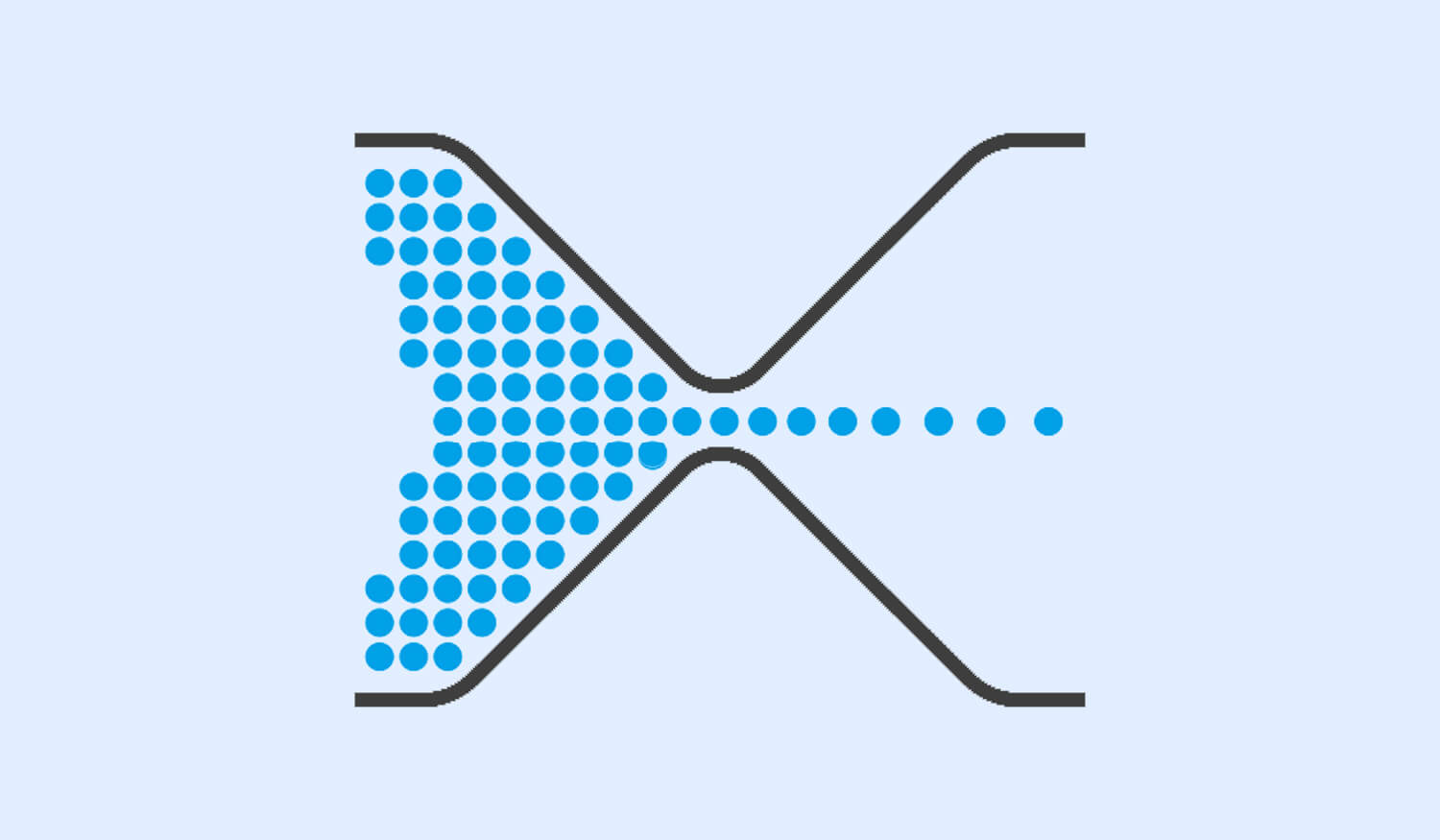A bottleneck is a general term that is used to describe a system that has been slowed down due to limited resources. The main reason why bottleneck occurs is when too many users are simultaneously trying to access a specific resource which is limited and hence bottlenecks.
When talking about Internet Bottleneck then it means that there are several resources or places in the network in which the ISPs or high use of the network slow down the speed of the users that are trying to use that network or resources. Internet Bottlenecks can be both natural and artificial which prevent some users from accessing the resources to avoid network overloading.
An example of an Internet Bottleneck can be experienced by users when there is a new episode coming of popular series. In such a scenario, when several users from different parts of the world are trying to access the same resource/content then it results in a partial failure of the streaming service and hence the website/content takes ages to load. This is a typical example of bottlenecking when the resources are limited but users are too high which results in a delay in delivery of the content.
As mentioned, internet bottlenecks can be both natural and artificial.
Natural Internet Bottlenecks
When there is high network usage and most of the users on a network are trying to access the same resource or content then due to network congestion there will be a delay in both delivering and accessing the content.
Artificial Internet Bottlenecks
Artificial Internet Bottlenecks are used created by the owners of the network, i.e your ISP. ISPs created artificial bottlenecks to prevent the network from overloading.
Causes of Internet Bottlenecks
These are some common causes of network performance difficulties or internet bottlenecks. This does not include the artificial bottlenecks created bt your ISP.
1. Bandwidth Depletion
You may be experiencing bottlenecks on your network if someone on the network is using all of the bandwidth by downloading GBs of data or streaming music or video. In such cases, you may be experience bottleneck due to the increased usage of the network.
This can be fixed by asking all of the users to stop any such service that consumes most of the bandwidth if the network is small or monitor the network traffic and block specific traffic.
2. Too many devices
Another reason for Internet Bottlenecks may be that you have too many devices connected to the network simultaneously on a single network. This can also cause network bottlenecking.
3. Not enough Bandwidth
Having not enough bandwidth is another cause of bottlenecks because your network has out limited the limited bandwidth capacity of your ISP and you need to switch to a higher plan to fix this problem.
4. Server Overloading.
Server Overloading can also be a cause of internet bottlenecking. The reason being that when you are running multiple applications through a single network then all the resources of the server are depleted and there are just not enough resources left to process your request. In such cases, you may be experiencing internet bottlenecks, which can be fixed by either shifting some load to another server or upgrading the resources of the server.

